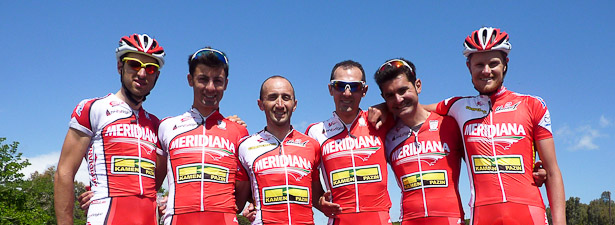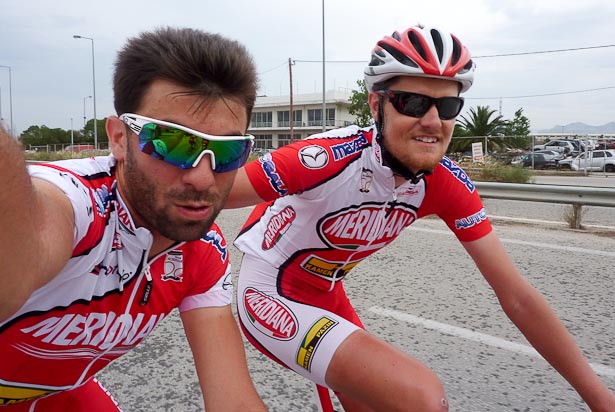It’s been a while since I posted, I intended to do something a little more regularly but unfortunately I’ve been preoccupied with health problems for much longer than expected.
Since around March my power values haven’t been increasing the way I was expecting them to.
I didn’t panic though, I knew I was behind and that my form might come a little later than usual because of an interrupted winter.
In the Tour of Greece however my legs were very empty and I was physically unable to push hard enough to get out of breath, my legs felt like jelly and it was time to admit to myself that something was wrong.
I saw the race doctor before the start of the fourth stage, he told me I was anaemic (low iron).

I helped the team as much as I could and then abandoned after around 60k so I could begin my recovery there and then. The words from the doctor before the start made me feel relieved more than anything to be honest. It was also a relief to finally admit to myself that something was wrong after months of battle with my powermeter.
I went back to Italy after the race, promptly passed out at lunch and so went to the local GP later in the afternoon, he was unable to get a blood pressure reading as it was so low. A few days later I got a blood test which didn’t really flag up an awful lot except that my haematocrit and red blood cell count was much lower than it normally is. So that explains my reduction in performance these last couple of months then, the next question was why did it get so low?
Sherlock time…
My training and racing load hasn’t been an awful lot higher or different than other years, so it isn’t simple overtraining. My diet in Italy was probably better than in the UK. I eat a multivitamin with iron everyday anyway just to cover my bases so to speak, so it isn’t a dietary problem, i.e. not anaemia as the doctor suspected.

I came back to the UK and had much more detailed blood tests which ruled out a whole load of other things. There are a few more things left to test for but it’s looking more and more likely that I have some sort of post viral fatigue (a fuzzy condition that’s quite hard to properly diagnose.
The cure? Rest.
How much rest? Until I’m better again; it varies dramatically from person to person, probably a number of months though at a guess.
Post viral fatigue would mean I must have caught a virus at some point. Since I haven’t felt ill yet this year it’s a bit of a mystery as to when it happened. It’s common to get PVF from viruses so minor that you don’t even notice it (a “subclinical” virus).
It’s also possible to not notice that you have had something as big a deal as glandular fever even. Apparently Glandular fever is rife in the amateur ranks in Italy, it gets spread from sharing drinking bottles, It isn’t unheard of to get it as a pro, too. All of my team mates in Italy have had it but many years ago. I’m currently waiting on a blood test result for this and a few other common PVF causing viruses.
I had a recovery plan involving lots of café rides for when I came back to the UK but since returning I’ve become too tired even to make it to a café.
Given my current state of health it’s unlikely I will be in a suitable state of fitness in time to finish out the season in Italy at least. Perhaps I’ll be good enough for a national B in the UK before the season is out.
Bugger. My first season as a pro looks like it has been a total failure.
I am deciding to stay relentlessly positive though, losing a season to PVF or Glandular fever is a rite of passage for a cyclist. It goes along with things like breaking your collarbone (and I’ve already done that twice), I’m a real cyclist now.
The only thing that worries me is that I won’t be given another real chance next year despite knowing now that I am more than capable of delivering on one.
If I could be a useful team mate to riders as classy as Davide Rebellin (with an FTP around 20-40% lower than it should be) in the mountains of Greece then surely that is one small positive I can take from this whole episode?
I just hope someone will give me another chance.
davidmcleancyclist.com
@DavidMcleanCycl
facebook.com/davidmcleancyclist



